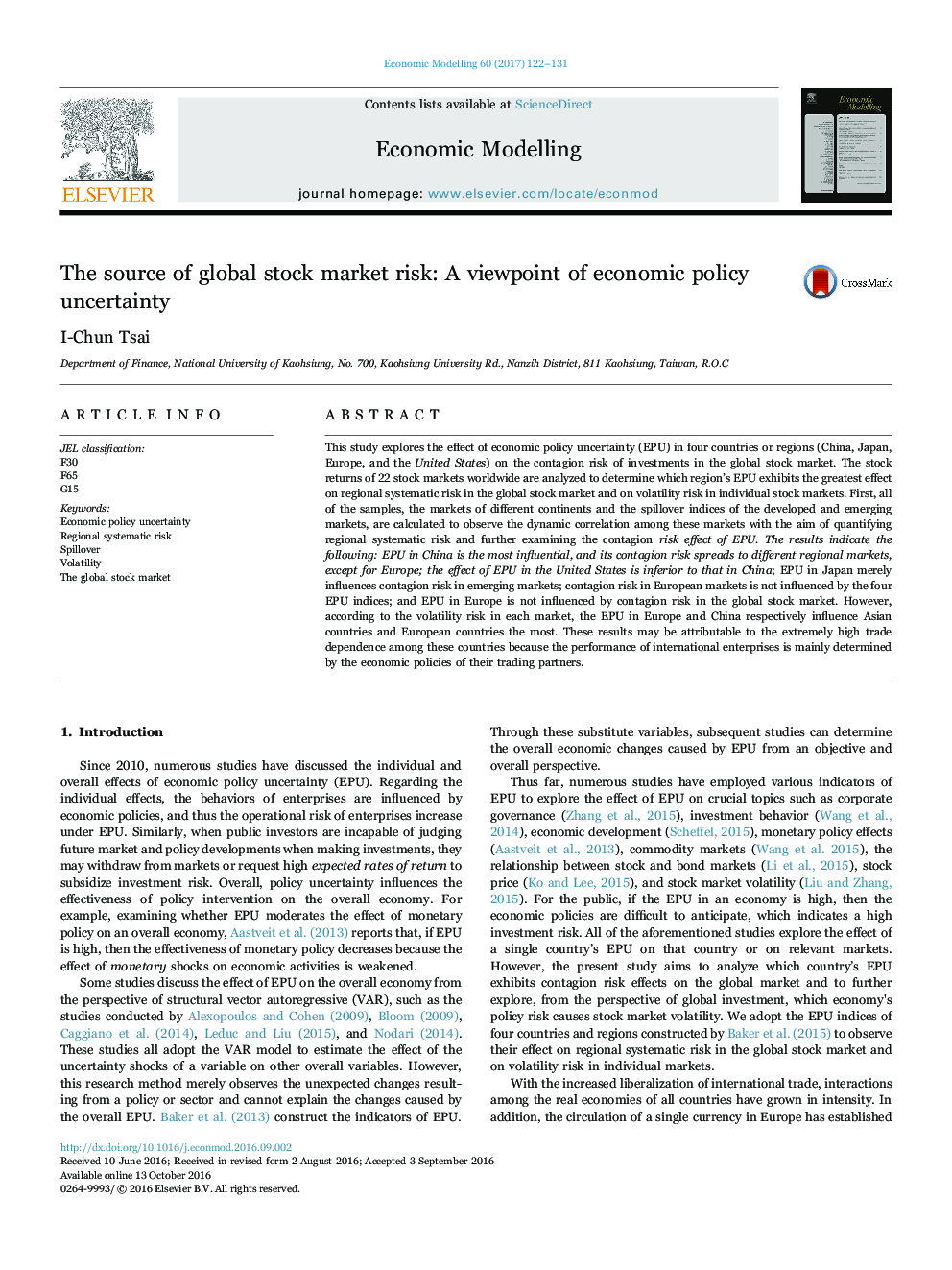| Article ID | Journal | Published Year | Pages | File Type |
|---|---|---|---|---|
| 5053193 | Economic Modelling | 2017 | 10 Pages |
â¢This study uses the data of economic policy uncertainty (EPU) in four countries or regions.â¢The study explores the effect of EPU on the contagion risk of investments in the global stock market.â¢The results show EPU in China is the most influential.â¢The EPU in Europe and China respectively influence Asian countries and European countries the most.â¢These results may be attributable to the extremely high trade dependence among these countries.
This study explores the effect of economic policy uncertainty (EPU) in four countries or regions (China, Japan, Europe, and the United States) on the contagion risk of investments in the global stock market. The stock returns of 22 stock markets worldwide are analyzed to determine which region's EPU exhibits the greatest effect on regional systematic risk in the global stock market and on volatility risk in individual stock markets. First, all of the samples, the markets of different continents and the spillover indices of the developed and emerging markets, are calculated to observe the dynamic correlation among these markets with the aim of quantifying regional systematic risk and further examining the contagion risk effect of EPU. The results indicate the following: EPU in China is the most influential, and its contagion risk spreads to different regional markets, except for Europe; the effect of EPU in the United States is inferior to that in China; EPU in Japan merely influences contagion risk in emerging markets; contagion risk in European markets is not influenced by the four EPU indices; and EPU in Europe is not influenced by contagion risk in the global stock market. However, according to the volatility risk in each market, the EPU in Europe and China respectively influence Asian countries and European countries the most. These results may be attributable to the extremely high trade dependence among these countries because the performance of international enterprises is mainly determined by the economic policies of their trading partners.
